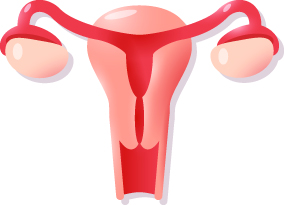The Truth About Biological Clock
“We never know,” Henry Ward Beecher poetically said, “The love of a parent till we become parents ourselves” But it is just as difficult to become one. The path of being a parent is paved with hardship, sacrifice and, oftentimes, even heartache. Some drea

Some of the things that make circumstances worse for couples trying to conceive are the myths that surround pregnancy and childbirth. These myths feed the couples with false hopes, non-pragmatic solutions and, in some severe cases, permanently damage their body, leaving them childless.
One of the unfounded beliefs is that it is not possible for a woman to get pregnant after 35 years of age. The truth is that: the likelihood of conception doesn’t rely on age but rather on the egg factor.
Every girl is born with a limited number of eggs. And with each menstrual cycle, she loses some. When all the eggs are gone, she enters menopause. The reality is that some women have more eggs while some have less. Thus, there are women who are able to conceive even when they are in their late 40s. The quality of eggs in a normal woman, however, decreases after the age of 35. It is not that pregnancy becomes impossible after 35, but that it becomes risky for the mother and the child. After 39 years of age, there are more complications in the process. So for a natural pregnancy, it is advised that a woman become pregnant when she is younger.
Another subject that is really left untouched is when should a couple start seeing a fertility expert? And how do they recognize that they have problem conceiving? For this, we sat down with the Executive Director of Vatsalya Natural IVF, an infertility treatment center, Ms. Shristi Khadka. She said, “If a couple have been trying regularly for six months and still haven’t been able to get pregnant, they should start seeking professional help.”
Problems in pregnancy, whether while getting pregnant or during pregnancy, could be because of many factors. Biological reasons for many miscarriages include damaged or abnormal embryos due to chromosomal abnormality, PCOS (Polycystic Ovary Syndrome) condition, cervical insufficiency, and so forth. Infertility in a couple is caused due to various biological reasons. In men, it is the sperm factor. Either there is a low sperm count, nil sperm count, or dead sperm. With women, the problems are greater and riskier. A few of them include low egg count, poor egg quality, endometriosis (a condition resulting from the appearance of endometrial tissue outside the uterus), tubal blockage, uterine fibroids (tumors in uterus), uterine tuberculosis and many more.
Vatsalya Natural IVF provides treatment to both men and women. Men are mostly given antibiotic treatments to increase the sperm count. Women’s treatments primarily include Natural Induction with Timed Intercourse, Intrauterine Insemination (IUI), Intracytoplasmic Sperm Injection (ICSI) and In Vitro Fertilization (IVF).
Natural Induction with Timed Intercourse is a simple treatment which includes intercourse when the female is most fertile. It helps to pinpoint the fertility window, when the female is ovulating and the chance of conception is high. At Vatsalya Natural IVF, the cost of this treatment varies from Rs.5,000 to Rs.10,000.
IUI includes placing sperm into a woman’s uterus for fertilization. It is mostly applicable on a fresh patient, with a healthy body and access to healthy semen. IUI is the most followed procedure in the country because it’s cheaper than IVF. However, IUI is an old method and has a success rate of only 10% to 15%. For IUI to be successful, there should be no tubal or sperm blockage. Also, it can only be done properly up to 4 times, or 6 in severe cases. Its cost ranges from Rs.15,000 to Rs.20,000.
IVF and ICSI are similar in their process except that while IVF means combining an egg with sperm in a laboratory setting and then transferring that to the uterus, ICSI means combining one egg with one sperm and then transferring it. It costs from 3 to 3.5 lakhs. However, there are other factors at play, such as age and lifestyle. For IVF to be successful, a woman should have a healthy uterus as well as an able body.
“Psychological support and help,” Shristi Khadka further added, “During these stressful times is a must. The patients need to be counseled and constantly convinced that they’ve come to the right place, and that it’s going to be ok. People often blame themselves and their incapacity, which demotivates them, and makes them hopeless. They need to be told that infertility is common, and that they just need to keep trying.”


